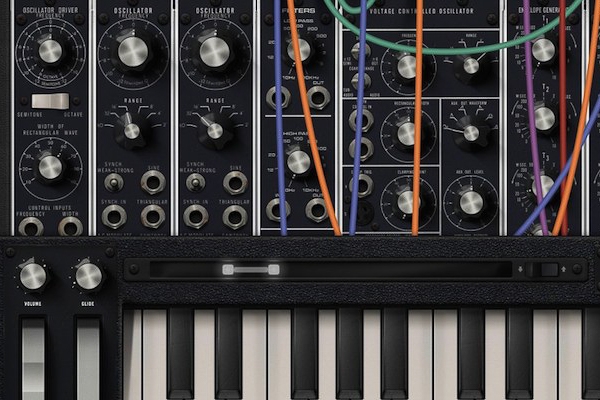
As a music festival, Moogfest’s technology and futurism side are unique in comparison to others (maybe with the exception of SXSW), as festivalgoers take part in various digital installations like Microsoft’s Kinect tent featuring Grimes, in sound building workshops and sessions on the future of digital music, or Hacking Sound (Systems), including The Exchange: Switchboard Synthesizers featuring Antenes. Meanwhile, Moogfest’s back-of-house operation team will be collecting, tracking and analyzing it’s own data pool of what’s taking place behind the scenes.
Six months back Moogfest got together with Mammoth Data, a Durham-based big data consulting and analytics firm, to brainstorm on how best to use festival data to enhance the experience for the festivalgoer in 2016 and beyond.
“The data Moogfest will collect and analyze will provide keen feedback across our entire festival experience,” said KamranV, CTO of Moogfest and founder of the LA-based artist and tech agency, CyKik, in their joint release. “Mammoth Data is making a meaningful contribution to an incredible platform for the future of Moogfest and Durham.”
Data collection and analysis in the festival space has been going on for some time. But it wasn’t until the last year or so when tech vendors and festival organizers were able to bring the silos of data sets together to really make sense of trends and statistics, that in turn, can influence decision making, enable cost-benefit analysis, strategic planning, and improved preparation.
Data sources derived from ticket sales alone can show what percentage of festival attendees are local, how many are from out of town, their city and country of origin.
When the right tools are used, organizers can view fan affinity to bands, brands, political party, their gender, age, and other demographics, along with the connections within their social networks.
From a crowd flow and management perspective, beacons tied to the festival’s app can map where people are going, their duration of time at each location, and send them timely and value-add notifications to their mobile device, like a coupon to buy food or beverage from a particular vendor, just as they’re nearing the food truck area. The festival app data can track which events and bands patrons added to their schedule, and when combined with the beacon data, what bands and events they actually went to.
When it comes to health and safety, a critical aspect of festival management, heat mapping data can enable the operations team to view crowd congestion and take action, and mobile notifications can get the word out to festivalgoers directly if impending weather is cause for seeking shelter.
On the side of access control, RFID wristbands allow general festival entry, along with managing specialize access to VIP, artist, and guest services areas, or can be used in conjunction with sponsor activations. When tied with a cashless payment system, then the festival organization can monitor food and beverage sell-thru data for inventory and revenue management, while providing patrons with a quicker and easier way to get their drink and dinner on, and then get back to the show.
All that data is and can be used in real time and for post-event analysis and reporting, as long as the additional platform and system is in place to make sense of it all.
The Moogfest data set plan seems pretty general; they’ll capture “festival, transportation, social media, and wireless data in real-time,” using technologies that include Hadoop, Google Cloud Dataflow, Apache Spark, and Redis. Combined, these platforms will be “utilized to build the infrastructure and provide future data analysis.”
This joint project is also tied to a bigger picture program with the city of Durham itself. “Our partnership will not only help provide an exceptional experience but over the next few years, Moogfest could collect the type of data that could optimize future city planning,” said Andrew C. Oliver, president and founder of Mammoth Data.
This makes so much sense for a venue-based city festival to work with its local government on more than just permits, policing, street closures and traffic. Looking at year-over-year data sets in various categories can then be used within predictive algorithms to provide improved transportation strategies or energy management. The city’s tourism board could also get in the loop, using data science to hone their message and marketing programs to lure visitors to their city year round, aside from the five-day invasion of Durham during Moogfest.
I have reached out to Mammoth Data to meet up with them at the festival. If that happens as planned, I hope to follow this piece with a more in-depth look at this ongoing data science project with Mammoth, Moogfest, and the city of Durham.
Moogfest runs May 19 – 23 at various venues throughout Durham. Go to www.moogfest.com for more information, schedule, and tickets.

